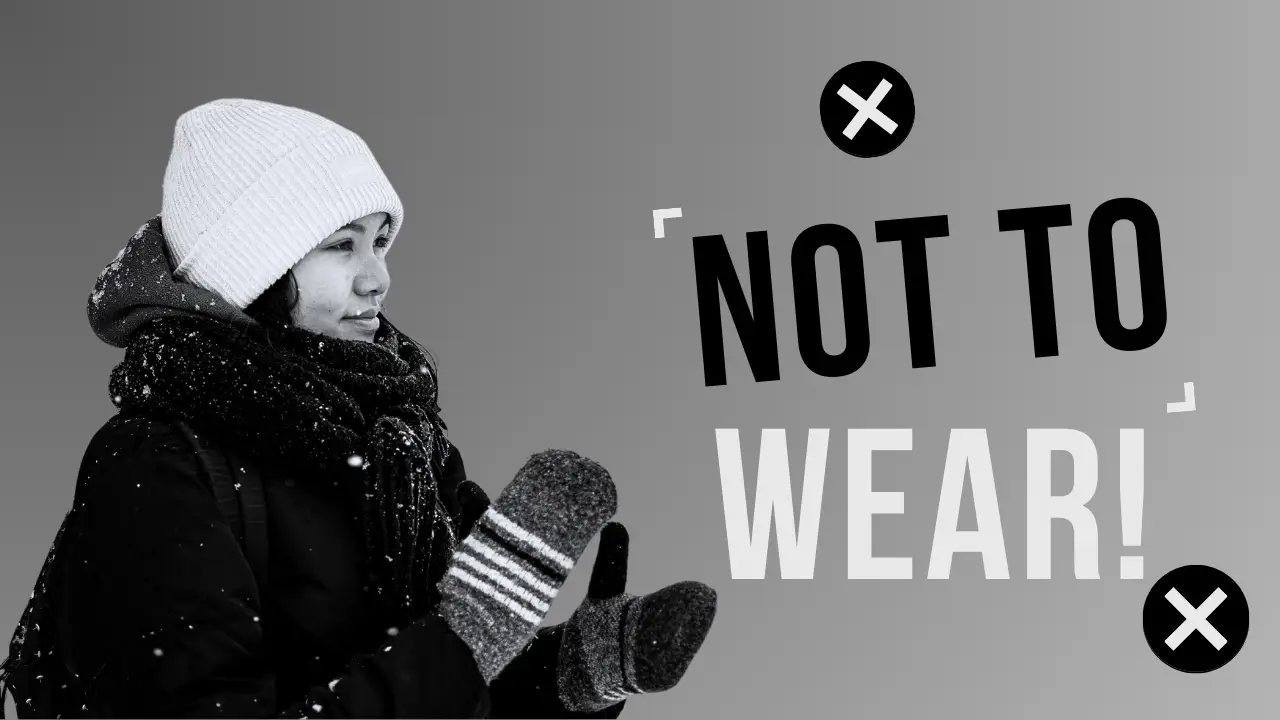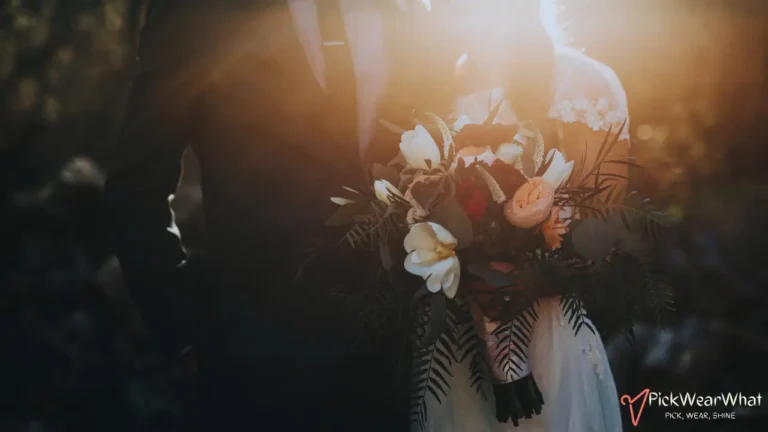When traveling to Belgium, understanding what not to wear can help you blend seamlessly into the local culture. It’s important to dress modestly when visiting religious sites, opting for clothing that covers shoulders and knees, and to choose sturdy, comfortable footwear suitable for the country’s charming but often cobblestone streets.
Additionally, Belgium’s weather can be unpredictable, so avoiding non-water-resistant clothing and forgetting essential layers can lead to uncomfortable outings. Personally, I once wore bright, neon-colored shoes while exploring the picturesque streets of Bruges and quickly realized they stood out in a place where subtlety is key. By being mindful of these clothing choices, you can enjoy Belgium’s rich culture and beautiful landscapes without any wardrobe mishaps.
| Month | What Not to Wear in Belgium | Weather Conditions |
|---|---|---|
| January | Lightweight summer dresses | Cold, average temperatures between -1°C to 4°C |
| February | Shorts and tank tops | Cold, similar to January |
| March | Extremely light clothing without layers | Cool to mild, temperatures from 3°C to 10°C |
| April | Heavy winter coats | Mild, with occasional rain |
| May | Thick sweaters and heavy jackets | Spring weather, temperatures between 8°C to 15°C |
| June | Very short skirts and sleeveless tops | Warm, temperatures from 12°C to 20°C |
| July | Heavy or bulky clothing | Warm and sunny, similar to June |
| August | Heavy fabrics and winter accessories | Warm and humid, temperatures from 12°C to 21°C |
| September | Summer-only attire like shorts and tank tops | Mild to warm, temperatures between 10°C to 18°C |
| October | Light summer clothing without layering | Cool, with increasing rain, temperatures from 8°C to 14°C |
| November | Lightweight jackets and summer dresses | Cold and damp, temperatures from 4°C to 9°C |
| December | Summer outfits such as shorts and sleeveless tops | Cold, similar to January and February |
Avoid Wearing Inappropriate Clothing for the Weather in Belgium
Understanding Belgium’s weather is crucial to avoid discomfort and wardrobe mishaps. The country’s climate varies significantly across seasons, and dressing appropriately ensures you stay comfortable while exploring.
Winter Wardrobe Missteps
Belgian winters can be harsh, with temperatures often dropping below freezing. Avoid wearing thin or sleeveless clothing during these months. Opt for layered outfits, including thermal wear, heavy coats, scarves, and gloves to stay warm.
Summer Style Errors
While summers in Belgium are mild compared to other European countries, it’s still essential to dress appropriately. Avoid wearing overly revealing or lightweight clothing without considering occasional cool breezes and unpredictable weather. Choose breathable fabrics and bring a light jacket for evenings.
Refrain from Wearing Inappropriate Footwear in Belgium
Footwear plays a significant role in both comfort and style during your stay in Belgium. Choosing the wrong shoes can lead to discomfort, especially when walking on cobblestone streets or exploring urban areas.
Avoid High Heels and Uncomfortable Shoes
Belgian cities like Brussels and Bruges feature historic streets with uneven surfaces. High heels or shoes without proper support can cause discomfort or even injury. Opt for comfortable, sturdy shoes suitable for extensive walking.
Steer Clear of Athletic Sneakers in Formal Settings
While sneakers are perfect for casual outings and exploring, they may not be appropriate for formal dinners or upscale venues. Bring a pair of smart shoes to complement your evening attire.
Avoid Revealing Attire in Certain Settings in Belgium
Belgium appreciates a balance between casual and stylish dressing. While casual wear is acceptable in many settings, certain occasions and places require more refined attire.
Inappropriate Attire for Churches and Formal Events
When visiting Belgium’s numerous churches or attending formal events, avoid wearing shorts, tank tops, or overly revealing clothing. Dress modestly with appropriate coverage to show respect for the setting.
Avoiding Beachwear Outside of Coastal Areas
Belgium has beautiful coastal areas, but wearing beachwear inland can be considered inappropriate. Reserve swimwear for beach visits and opt for regular clothing when exploring cities and countryside.
Steer Clear of Bright and Flashy Colors in Traditional Settings in Belgium
Belgian fashion tends to favor subtlety and sophistication. While vibrant colors are not entirely off-limits, excessive brightness or flashy patterns may stand out in traditional or conservative settings.
Opt for Neutral and Earth Tones
Choosing neutral and earth-toned clothing can help you blend in and respect local fashion preferences. These colors are versatile and suitable for various occasions, from casual outings to business meetings.
Avoid Loud Patterns and Excessive Accessories
Loud patterns and excessive accessories can be distracting and may not align with Belgium’s understated fashion sense. Keep your outfits simple and elegant to maintain a polished appearance.
Don’t Wear Heavy or Bulky Clothing During Warm Months in Belgium
Belgium’s warm months can still have fluctuating temperatures, and wearing heavy or bulky clothing can lead to overheating and discomfort.
Choose Lightweight Fabrics
Opt for lightweight and breathable fabrics such as cotton, linen, and lightweight blends. These materials help regulate body temperature and keep you comfortable during warmer days.
Avoid Layering Excessively
While layering is essential for cooler days, avoid piling on too many layers during the summer. Instead, carry a light jacket or cardigan that can be easily added or removed as the temperature changes.
Avoid Wearing Uncomfortable Clothing for Outdoor Activities in Belgium
Belgium offers a variety of outdoor activities, from hiking in the Ardennes to cycling through urban areas. Dressing appropriately ensures you enjoy these activities without hindrance.
Function Over Fashion for Outdoor Adventures
Choose functional clothing designed for specific activities. For hiking, wear moisture-wicking fabrics and sturdy footwear. For cycling, opt for comfortable and flexible attire that allows for ease of movement.
Avoid Non-Weather-Appropriate Gear
Belgium’s weather can be unpredictable, especially outdoors. Avoid wearing clothing that is not weather-resistant or suitable for sudden changes, such as unexpected rain showers. Bring waterproof jackets and quick-drying materials when planning outdoor excursions.
Additional Tips for Dressing Appropriately in Belgium
Belgium’s weather can change rapidly, especially in spring and autumn. Layering allows you to adjust your clothing based on temperature fluctuations throughout the day. Start with a base layer, add a sweater or cardigan, and finish with a stylish jacket.
Our detailed guide on What to Wear in Belgium covers the essentials you need for every season, including practical and stylish outfits that align with local fashion and weather conditions.
Choose the Right Layers
Select layers that are easy to add or remove, such as lightweight sweaters, scarves, and versatile jackets. This approach not only keeps you comfortable but also adds depth and interest to your outfits.
Prioritize Comfort and Functionality
Belgium is a country best explored on foot or by bike, so prioritize comfortable and functional clothing. Ensure that your outfits allow for ease of movement and are suitable for long days of sightseeing.
Invest in practical accessories like a durable backpack, a reusable water bottle, and a compact umbrella. These items complement your wardrobe while enhancing your travel experience.
Respect Local Customs and Traditions
Belgium has a rich cultural heritage, and dressing respectfully shows appreciation for local traditions. When visiting religious sites or attending cultural events, opt for modest and conservative attire.
If you plan to dine at upscale restaurants or attend theater performances, bring elegant clothing that meets dress codes. A smart-casual outfit is often a safe choice for such occasions.
Adapt to Urban and Rural Settings
Belgium’s cities like Brussels, Antwerp, and Ghent have a modern and trendy fashion scene, while rural areas may lean towards more traditional and practical attire. Adapt your wardrobe based on your destinations within the country.
In urban settings, you can experiment with contemporary styles and fashionable pieces. In contrast, rural areas may require more practical clothing suitable for outdoor activities and varying weather conditions.
FAQs What Not to Wear in Belgium
Avoid revealing clothes such as short skirts, tank tops, or sleeveless tops when visiting religious places like churches. Modesty is appreciated, so cover your shoulders and knees.
Do not forget to bring proper warm clothing, such as a thick coat, gloves, and a scarf, as temperatures can drop significantly in winter. Wearing inadequate layers might make outdoor activities uncomfortable.
While there are no strict rules, avoid overly bright or neon colors if you want to blend in. Belgians typically prefer neutral or muted tones for a classic, understated look.
Avoid wearing high-heeled shoes or thin-soled footwear when walking on cobblestone streets. Opt for comfortable, sturdy shoes to prevent discomfort or injury.
Steer clear of clothing that could be considered culturally insensitive. For example, avoid wearing outfits that might mimic traditional local costumes unless explicitly invited to participate.




